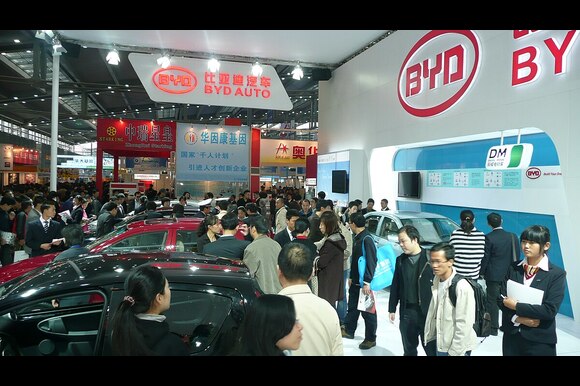Chinese automotive giant BYD has announced that the United Kingdom has become its largest market outside China, after the company recorded an extraordinary 880% increase in sales in September compared to the same month last year.
According to the company, BYD sold 11,271 vehicles in the UK last month, with the plug-in hybrid version of its Seal U sports utility vehicle (SUV) accounting for the majority of those sales.
The announcement follows new data from the Society of Motor Manufacturers and Traders (SMMT), which showed that UK sales of electric vehicles (EVs) soared to a record high in September.
UK Market Becomes a Key Hub for BYD’s Global Growth
The UK’s growing appetite for electric vehicles has made it an especially appealing destination for Chinese car manufacturers like BYD. The country has not imposed tariffs on Chinese EVs, in contrast to the European Union and the United States, which have introduced new trade barriers against Chinese imports.
As a result, BYD — which offers more affordable models than many Western competitors — saw its UK market share rise to 3.6% in September.
BYD’s UK general manager, Bono Ge, described the company’s prospects as “hugely exciting,” noting that the firm has just opened its 100th retail outlet and plans to launch several new hybrid and electric models in the coming months.
Record-Breaking EV Sales Across the UK
According to the SMMT, UK sales of fully electric vehicles rose to nearly 73,000 units in September, setting a new record. Plug-in hybrid car sales grew even faster, underscoring a strong shift toward electrified mobility.
The Kia Sportage, Ford Puma, and Nissan Qashqai were the three best-selling cars of the month, while Chinese entrants — the Jaecoo 7 and BYD Seal U — both ranked among the top ten best-sellers.
However, despite the surge in EV demand, petrol and diesel vehicles still accounted for more than half of all new car sales, highlighting that the UK’s transition to electric mobility remains a work in progress.
Trade Barriers and Global Market Challenges
In contrast to the UK, the European Union last October introduced tariffs of up to 45% on imports of Chinese electric vehicles. The move was designed to protect European carmakers from what the EU described as unfair state subsidies supporting Chinese manufacturers.
Meanwhile, Chinese carmakers have effectively been shut out of the US market by high import tariffs — a policy supported by both President Donald Trump and former President Joe Biden.
Despite these restrictions, BYD continues to outperform global competitors. The company remains well ahead of US rival Tesla in total global sales and has also outpaced major European brands including Jaguar and BMW.
UK EV Incentives Exclude Chinese Brands
In July, the UK government announced a £650 million ($875 million) incentive program to encourage more drivers to switch to electric vehicles. The initiative allows consumers to claim discounts of up to £3,750 on selected EV models from brands such as Nissan, Peugeot, and Vauxhall.
However, the scheme excludes Chinese-made vehicles, citing concerns about the carbon emissions associated with their production.
BYD has criticised the exclusion, warning that it could undermine the UK’s EV market in the long run by limiting competition and consumer choice.
BYD’s Continued Expansion
Even as its sales slow in China, BYD’s international expansion shows no sign of easing. The company’s UK performance underscores its growing dominance in the global electric and hybrid vehicle market, positioning it as a major force in the world’s transition away from fossil fuels.
With record-breaking growth, a rapidly expanding retail network, and plans to introduce more affordable hybrid and electric models, BYD’s UK success story marks a significant milestone in the global EV race.






